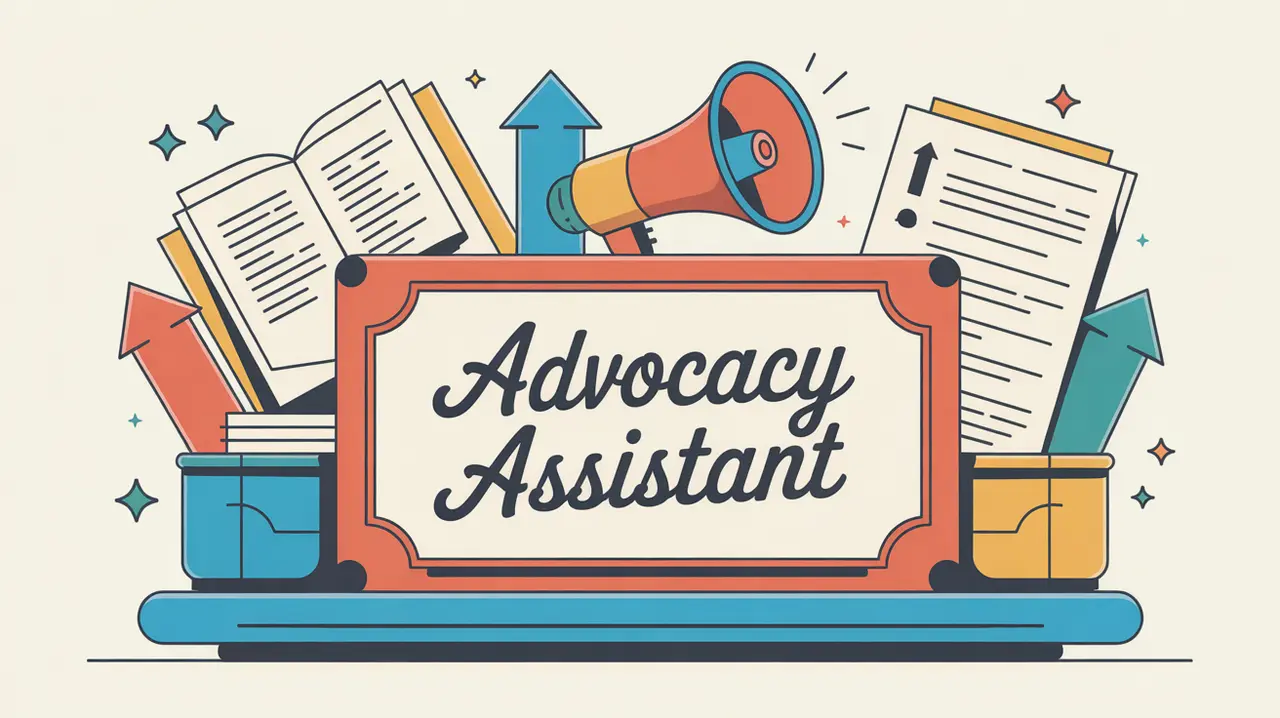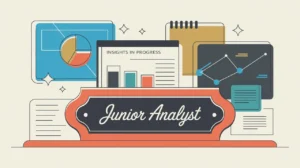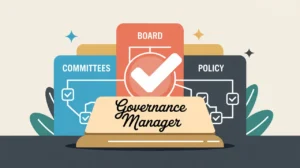What Does the Advocacy Assistant Role Involve?
An advocacy assistant supports the planning and execution of activities that aim to influence public policy, shape opinion, or advance specific issues aligned with an organization’s mission. This often involves assisting with research, tracking policy developments, coordinating events or campaigns, and supporting communications with stakeholders, coalitions, and decision makers. Advocacy assistants help ensure that strategies are well organized, evidence-informed, and effectively delivered. The role typically sits within policy, communications, or program functions. In both nonprofits and social enterprises, advocacy work plays a critical role in advancing systemic change, and advocacy assistants provide the operational and analytical backbone that helps these efforts succeed.
At What Level does this Role Operate?
Entry Level: This role operates within advocacy, policy, or communications teams, often in coordination with program staff. Advocacy assistants typically report to advocacy officers, policy managers, or campaign leads. They support advocacy strategies through research, logistics, and outreach, and may interact with partners, government agencies, or networks under supervision.
Relative Employability: Entry-level advocacy roles are in steady demand across nonprofits, social enterprises, think tanks, and issue-based coalitions. They offer a strong entry point for individuals interested in policy engagement, social change, or strategic communications.
Relative Pay Scale: Within nonprofits and social enterprises, advocacy assistant roles typically fall within the lower to mid pay bands, comparable to program assistant or communications assistant positions. Compensation tends to increase as advocacy responsibilities and external representation grow.
What are the Key Responsibilities and Activities?
- Track and summarize policy developments relevant to the organization’s mission
- Conduct basic research to support advocacy strategies and campaigns
- Assist with organizing events, briefings, and meetings with policymakers or stakeholders
- Support coalition building and partner engagement activities
- Draft communications materials such as advocacy briefs, talking points, or updates
- Maintain records of advocacy activities, contacts, and campaign progress
- Provide logistical and administrative support for advocacy initiatives
What Core Competencies and Qualifications are Needed?
Required Qualifications and Experience
The following reflect common qualifications and experience expected for this role, while recognizing that pathways may vary by context, organization, and region.
- Relevant academic background or equivalent professional experience in political science, public policy, communications, or related fields
- Appropriate years of relevant experience for an entry-level role, which may include internships, research assistance, or volunteer engagement in advocacy contexts
- Familiarity with policy processes, advocacy tactics, or public affairs is advantageous
- Strong research, writing, and organizational skills
Key Competencies
- Ability to conduct policy research and synthesize information clearly
- Organizational and logistical coordination skills
- Clear written and verbal communication for advocacy contexts
- Collaborative mindset for working across teams and with external partners
- Attention to detail and ability to manage multiple priorities simultaneously
How are AI and Automation Shaping this Role?
An AI-native advocacy assistant will look to AI and automation to strengthen research, accelerate policy monitoring, and improve communication workflows. They can use AI tools to scan legislation, summarize policy documents, and track media coverage in real time. Automation can streamline contact management, event follow-ups, and campaign tracking, allowing advocacy assistants to focus more on synthesis and relationship building. AI can also support drafting briefs, talking points, or stakeholder updates, which can then be refined for accuracy and tone.
What Career Pathways and Transferable Skills are Associated with this Role?
Advocacy assistant roles provide a foundation for advancing into advocacy officer, policy associate, or campaign coordinator positions. The skills developed in policy analysis, stakeholder engagement, and strategic communications are transferable to roles in government relations, public affairs, program management, and policy research across nonprofits, social enterprises, think tanks, and advocacy networks.







